Meet the 10 Jewish Democrats vying in 2020 to join Congress for the first time
Published October 28, 2020
(JTA) — Of the 33 Jewish Democrats running for the U.S. House of Representatives, 10 would be new to Congress if they won.
A number of them have serious shots at displacing incumbent Republicans, including in New York, North Carolina, Missouri and Florida. Others are likely to replace Democrats leaving office, including in Massachusetts and California.
Together, they paint a picture of American Jewish diversity: the millennial heiress dating a Palestinian in San Diego, the former Marine in Massachusetts who says his Jewishness led to “serious confrontations” while in the service, the scientist in New York who says she wants to take on the pandemic, and the former head of two national Jewish groups in North Carolina whose frenzied phone calls seeking treatment for her ailing daughter led her to seek office.
ADVERTISEMENT
Here are the 10 Jewish Democrats looking to break into the House this cycle.
Jake Auchincloss, 32
Massachusetts’ 4th District, which runs south from Boston to the state’s south coast

Jake Auchincloss addresses the media after he is declared the winner of the Democratic primary in Massachusetts’ 4th District in Newton, Mass., Sept. 4, 2020. (Suzanne Kreiter/The Boston Globe via Getty Images)
Background: A current Newton City Councillor, Auchincloss is running to fill the seat currently held by Joseph Kennedy III (yes, those Kennedys), who ran an unsuccessful primary against Sen. Ed Markey. Auchincloss won a nine-way primary on Sept. 1 with 22.4% of the vote, just three tenths of a percent ahead of his closest rival. (The second-place finisher, Jesse Mermel, is also Jewish, along with at least two other contenders.) He’s a former captain in the Marines — he says he clashed with other Marines over anti-Semitism in the service — and once was a registered Republican, a fact that his rivals pointed out frequently. His policies are centrist; Kennedy also tacked to the center in a district with several conservative enclaves.
Big issues: Immigration crops up plenty throughout Auchincloss’s campaign website. He notes his parents’ immigrant roots, including the fact that his mother, the first female CEO of the Dana-Farber Cancer Institute, is the granddaughter of a refugee. He authored a provision as a Newton councillor that protects immigrants from Immigration and Customs Enforcement agents’ overreach.
ADVERTISEMENT
Auchincloss’s Israel policies are extensive and tracks closely with centrist Democratic thinking: Israel must still strive to reach a two-state solution, but the Palestinian leadership is largely to blame for not stepping up. He visited Israel in his freshman year in college. “I saw firsthand the amazingly successful State my people rebuilt after 2,000 years of exile,” he says.
Backers: Auchincloss’s fellow Newton councillors, including a number of conservatives, have endorsed him. Notably, the state’s Republican governor, Charlie Baker, has not endorsed either Auchincloss or his Republican opponent, Julie Hall.
Odds: There don’t appear to be published polls. The district has for years leaned strongly Democratic, but that might be a function of name recognition for Kennedy and before him, Barney Frank, the veteran Jewish Democrat.
Dana Balter, 44
New York’s 24th District, which encompasses Syracuse
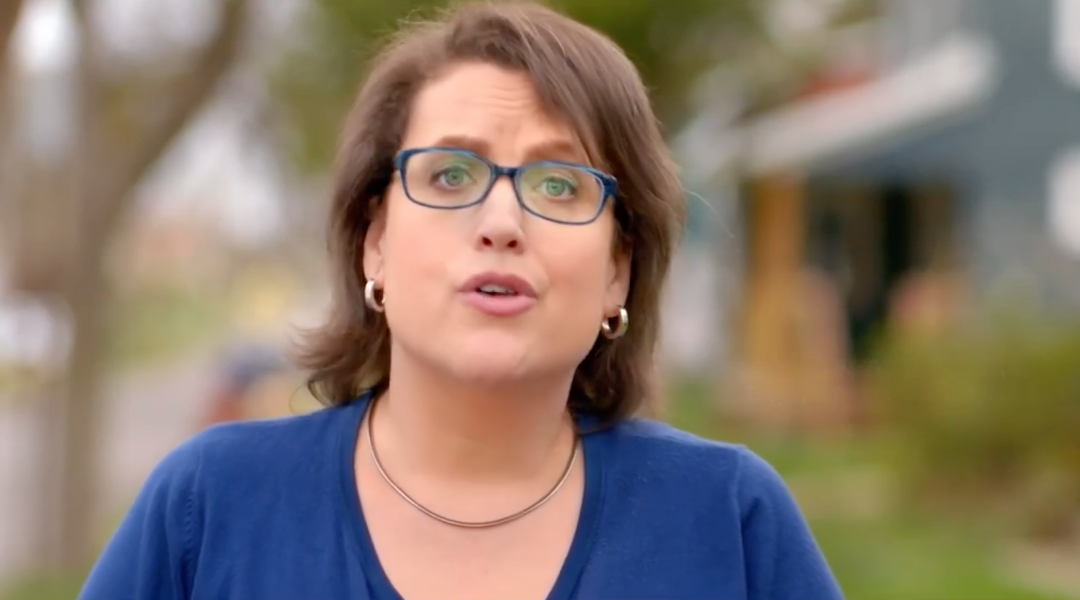
Dana Balter seen in a campaign video. (Screen shot from Facebook)
Background: A former professor at Syracuse University’s Maxwell School of Citizenship and Public Affairs and the granddaughter of Austrian Jews who narrowly escaped the Holocaust, Balter wants to unseat John Katko, the only Republican in a Democratic majority region. After becoming a community organizer in 2016, she ran against Katko in 2018 and shaved his 22-point win in 2016 to five points. Now, she says in an ad, she wants to “finish the job.”
Big issue: Health care is one; Balter nearly went bankrupt dealing with the aftereffects of a concussion she suffered when she fainted after giving blood in 2003. She favors “Medicare for All,” placing her to the left of the party’s presidential nominee, Joe Biden. Another issue is special education — Balter was a special ed teacher and her brother suffers cognitive disabilities.
Backers: Balter has gotten a wide range of endorsements, including from Barack Obama, Bend the Arc Jewish Action, DMFI PAC, J Street and Our Revolution. DMFI PAC and Our Revolution may seem like strange bedfellows, but Balter would not be the first leftist Jew with a strong pro-Israel tilt to win the 24th. In 1948, Leo Isacson, a socialist running on the American Labor Party won a stunning upset over a Democrat. The 24th was a very different district then, covering the Bronx. Isacson, in his single term, led demands for the recognition of Israel.
Odds: The Cook Political Report rates the 24th a toss-up. Balter may yet finish the job.
Christine Bubser, 58
California’s 8th District, running east from Los Angeles’ eastern suburbs to the Nevada border

Christine Bubser in a campaign video. (Screen shot from YouTube)
Background: A businesswoman in the medical products field, Bubser is a producer of “Birddog Nation,” a documentary focusing on some of the stars of the progressive politics spurred by Trump’s election. One of her subjects is Ady Barkan, the Jewish activist who has ALS. She’s producing the film with Sophie Sartain, a fellow congregant at Temple Israel of Hollywood, where she has served on the board, even though she now lives a considerable distance away, in Mammoth Lakes, near the Nevada border. She converted to Judaism in 2007 and blows the shofar at High Holiday services each year.
Big issue: Health care reform. Her daughter’s epilepsy led her to focus on making health insurance available to people with preexisting conditions.
Backers: Bend the Arc Jewish Action, JDCA
Odds: Not great. Bubser is running to fill the seat being vacated by Republican Paul Cook, who is retiring, and the GOP nominee is Jay Obernolte, a well known member of the state assembly. In California’s open primary system, the top two vote-getters, no matter the party, face each other on Election Day. Bubser’s 28.7% earned her a spot on the ballot, but Republicans overall garnered 58.7% of the vote to Democrats’ 37.6%.
Alan Cohn, 58
Florida’s 15th District, covering a patch of central Florida stretching east from Tampa
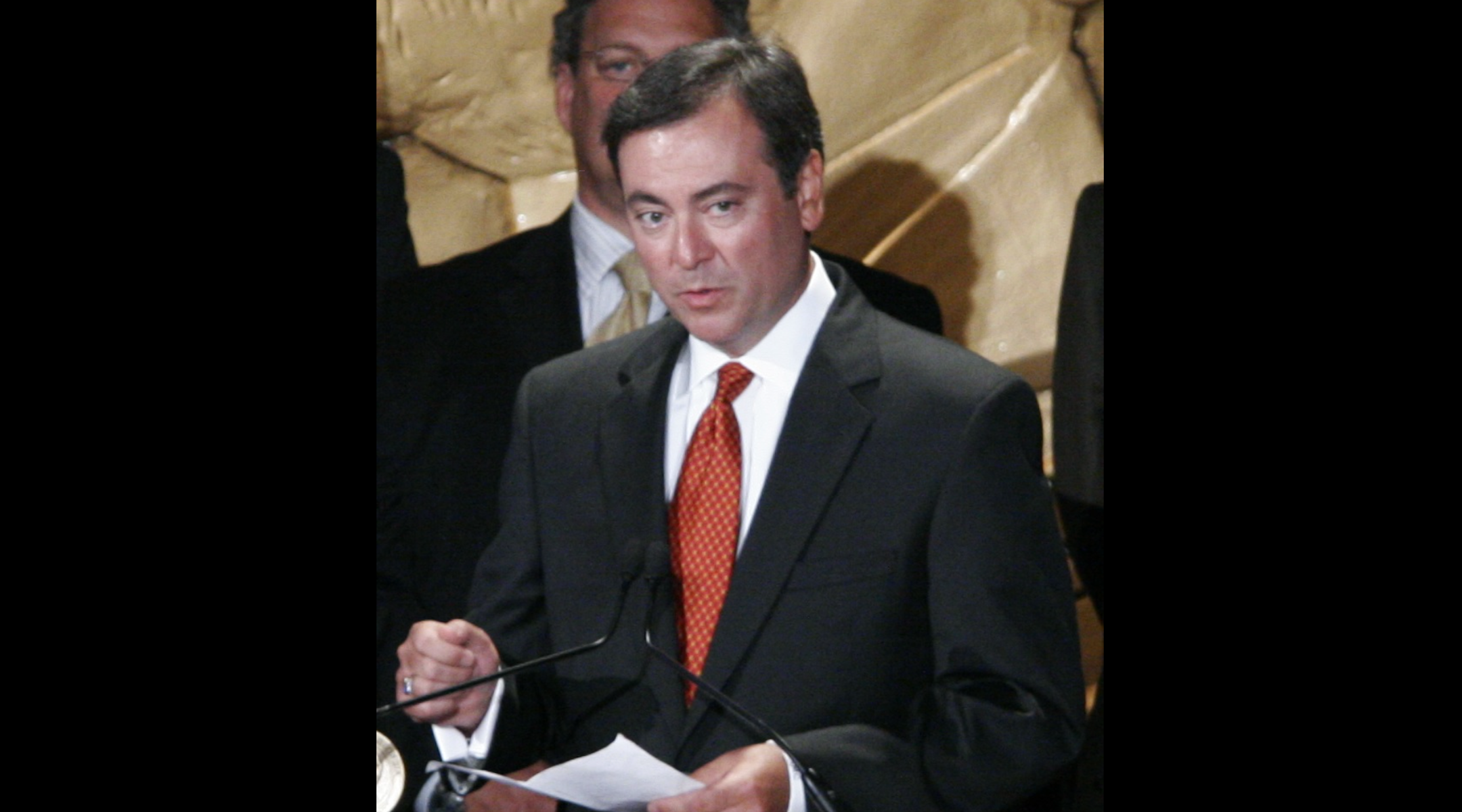
Alan Cohn at the Peabody Awards in New York City in 2007. (Wikimedia Commons)
Background: Cohn was a TV news anchor and an investigative journalist who won a Peabody award in 2007 for exposing the use of defective parts in Sikorsky helicopters and an Emmy for his report on a convicted killer who wanted to become a Boston police officer. Now he’s trying his hand at politics, where he’s facing Scott Franklin, an insurance business owner and former Navy aviator. Franklin ousted an establishment Republican, Ross Spano, in the primary with the backing of Matt Gaetz, the right-wing Republican congressman who is close to Trump.
Big issue: Health care. Cohn wants to mandate the expansion of Medicaid, the federal program that funds health care for the poor, and to get states to create a public option for insurance. “My ethics are rooted in my Jewish upbringing,” Cohn told the Jewish Press of Tampa.
Backers Barack Obama, DMFI PAC, JACPAC, JDCA, J Street
Odds: The Cook political report lists the district as lean Republican and recent polls show Cohn trailing Franklin — but not by much.
Nancy Goroff, 52
New York’s 1st District, which covers the eastern half of Long Island
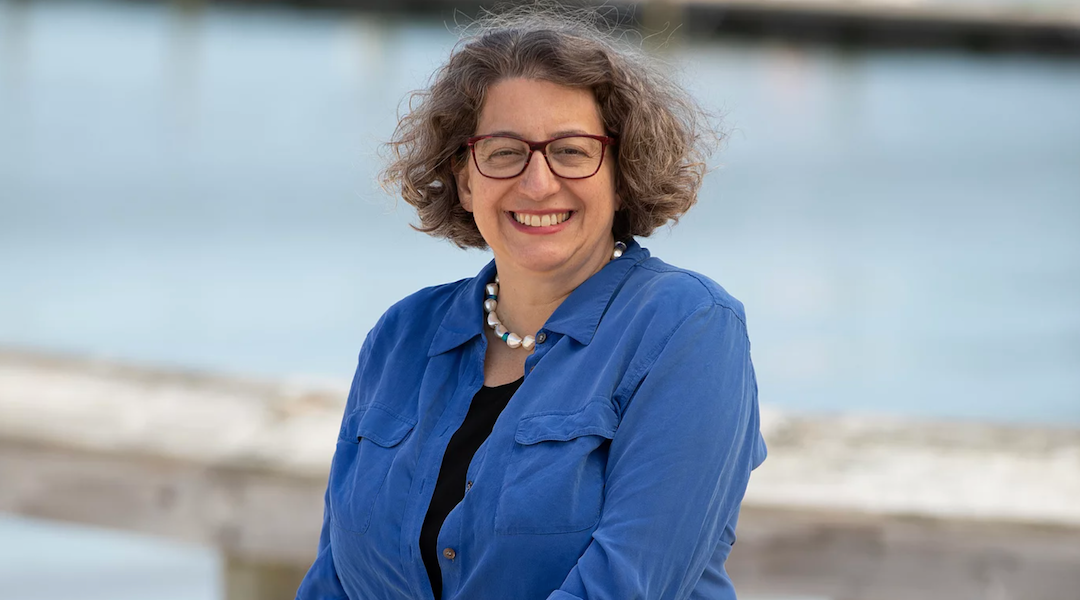
Nancy Goroff is neck and neck with Rep. Lee Zeldin in the polls. (Nancy Goroff for Congress)
Background: Goroff is the former chairwoman of the chemistry department at Stony Brook University and has the distinction of being enough of a well known scientist to have her political ambitions profiled in Science magazine. She joined a number of marches after Trump was elected, but her political ambitions caught her colleagues off guard: When she said she had an announcement, they assumed she was leaving the school.
Big issue: COVID-19. Goroff is running against Trump’s handling of the pandemic, and against incumbent Republican Lee Zeldin’s support for Trump’s handling of the pandemic. “I believe in science” is a slogan featuring prominently on her campaign website.
Backers: Barack Obama, Bend the Arc Jewish Action, JACPAC, JDCA. Goroff is also one of four Jews running for the House endorsed by the Freethought Equality Fund Political Action Committee, which backs candidates who show “their solidarity with the atheist and humanist community.” She told the PAC she identifies as a “secular Jew.”
Odds: Goroff, who won a surprise narrow victory in the Democratic primary, is neck and neck with Zeldin in the polls.
Joan Greene, 50
Arizona’s 5th District, west of Phoenix, comprising exurbs and towns
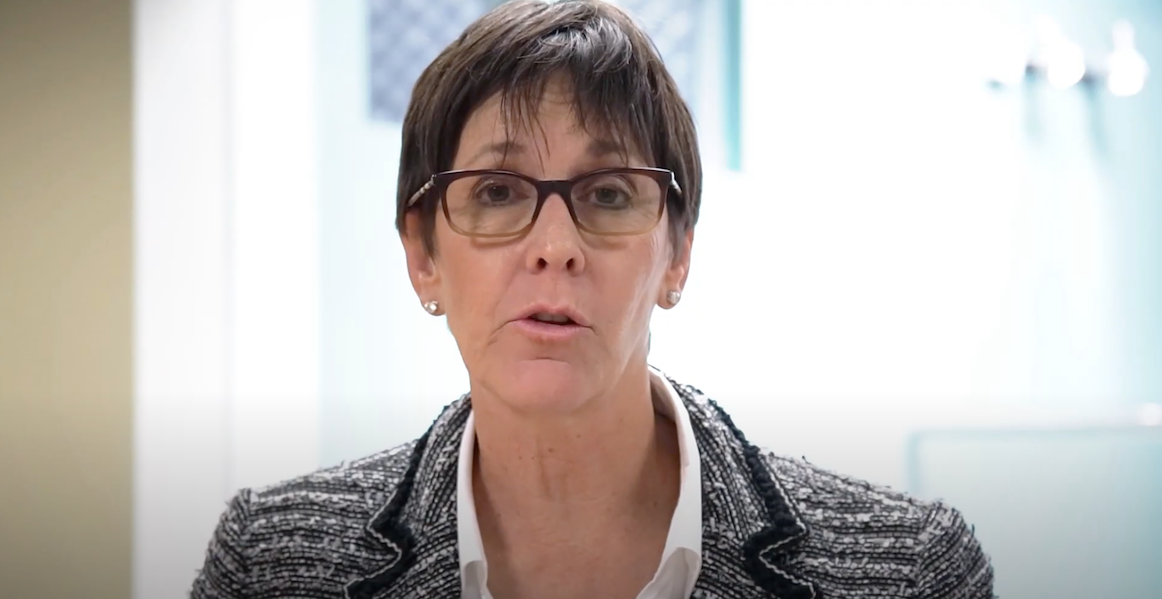
Joan Greene in a campaign video. (Screen shot from YouTube)
Background: Greene, who is LGBTQ, was spurred to run in part when she found out the Republican incumbent, Andy Biggs, called same-sex marriage an “affront.” The operator of a consulting business with a focus on nonprofits, Greene picked a campaign slogan focused on giving residents of her district a “hand up.” A member of Sun Lakes Jewish Congregation, she told the Phoenix Jewish News, “Our faith says that we must extend our hands to others.”
Big issue: Health care reform. Greene favors the single payer system.
Backers: DMFI PAC, JDCA
Odds: Arizona may be going purple, as Greene likes to tell interviewers, but FiveThirtyEight says her district remains “solid red.” The polling site gives her a less than 1 in 100 chance.
Sara Jacobs, 31
California’s 53rd District covering portions of the southern part of San Diego County
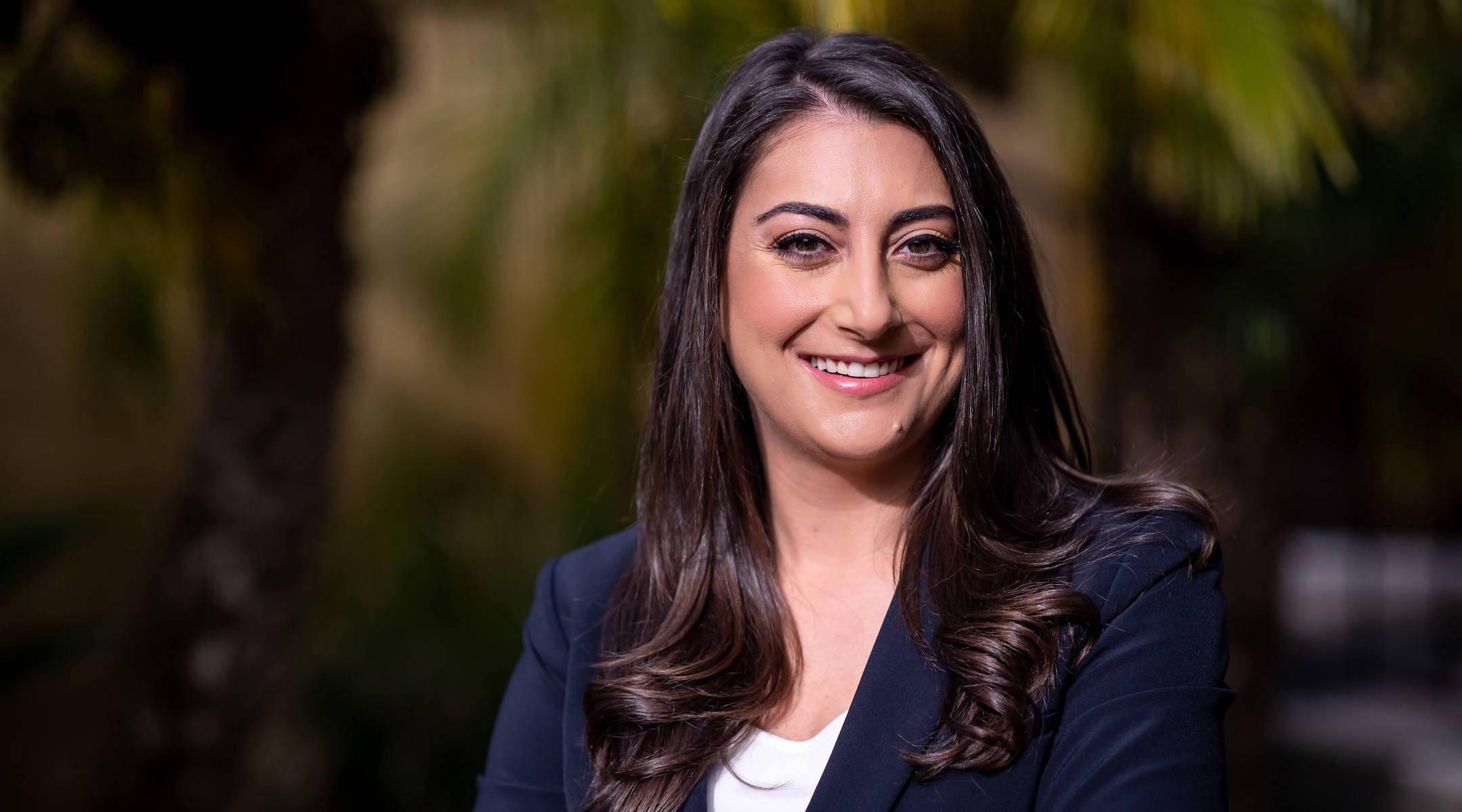
Sara Jacobs worked in the Obama administration’s State Department. (Sara Jacobs for Congress)
Background: The founder of an anti-poverty nonprofit and scion of a prominent San Diego philanthropic family, Jacobs ran in a different district in 2018 but was defeated in the primary round by Mike Levin, a Jewish environmental lawyer who went on to win. When Congresswoman Susan Davis, who is Jewish, announced plans last year to retire, Jacobs leaped in again. She’s dating Ammar Campa-Najjar, the Palestinian American who is the Democratic nominee in the neighboring 50th District. Campa-Najjar’s grandfather was a notorious Palestinian terrorist; he has emphatically renounced him.
Big issues: Combating poverty, and foreign policy. She worked in the Obama administration State Department wrapping human rights guarantees into anti-extremist violence aid overseas. When it comes to Israel, she opposes the movement to boycott the country but is sharply critical of the Netanyahu government and told the San Diego Jewish World that the Israel prime minister’s stated plans to annex parts of the West Bank could lead to a cut in assistance. “I think all U.S. assistance needs to be viewed through the lens of ‘does it move things closer to peace?’ and annexation absolutely does not,” she said.
Backers: Jacobs does have the endorsement of the San Diego Jewish World, JACPAC and of J Street. But the San Diego Democratic Party has endorsed Jacobs’ Democratic opponent, Georgette Gomez, the San Diego Council president, and says that Jacobs mailers noting the endorsement of “California Democrats” are misleading. Also endorsing Gomez — not Jacobs — is DMFI PAC, which opposes any efforts to condition aid to Israel. Barack Obama has endorsed her boyfriend, but not her.
Odds: Hard to say. A poll last month showed Jacobs leading Gomez 38-24 — but with 38% of voters still undecided.
Kathy Manning, 63
North Carolina’s 6th District, stretching east of Greensboro and bordering Virginia
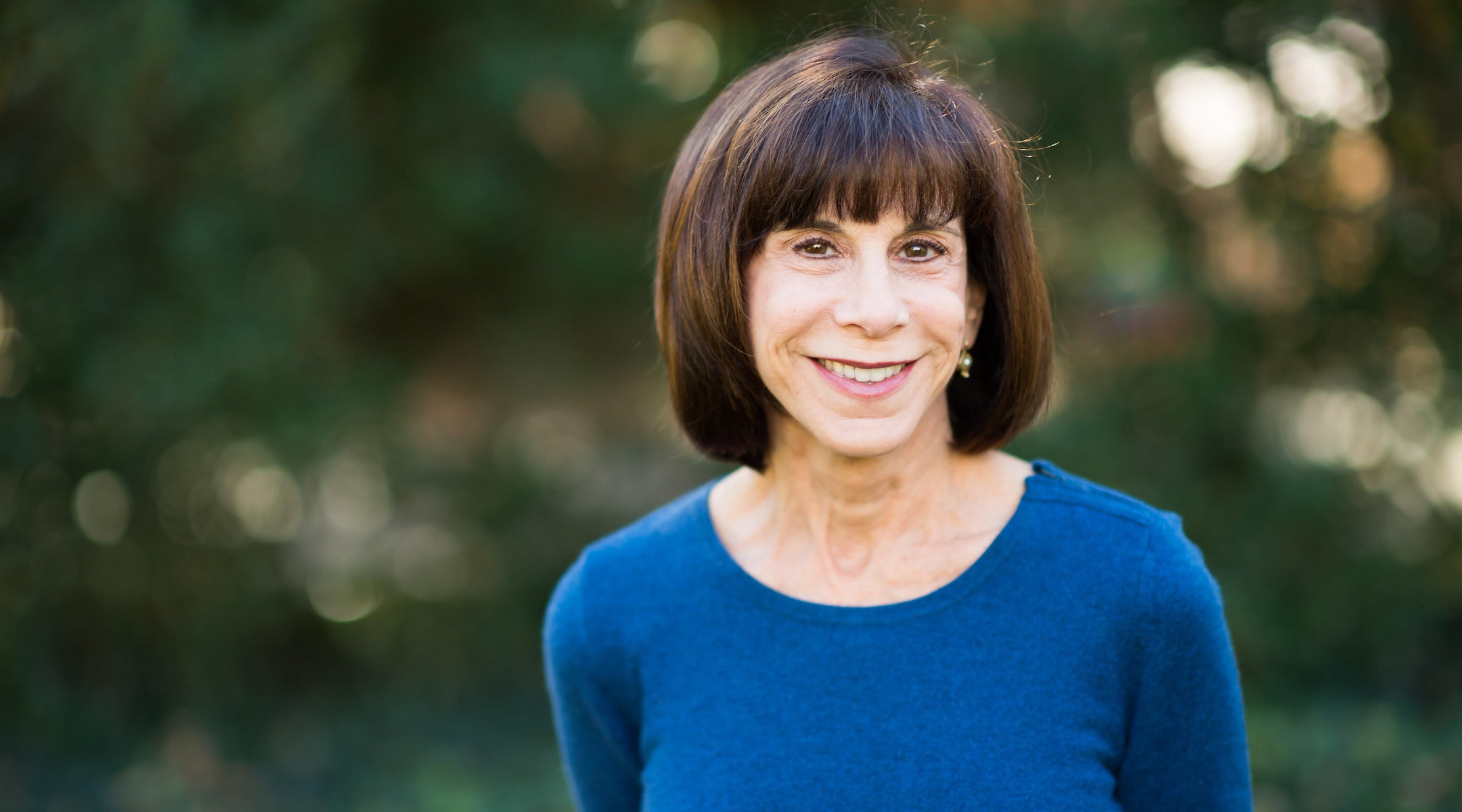
Kathy Manning lost in 2018 but is now favored to win after a court redrew North Carolina’s districts. (Kathy Manning for Congress)
Background: A former immigration attorney and founder of Harvard’s first all-woman a capella group, Manning first ran in 2018 in the 13th District and lost by 6 points. Since them, a court redrew the districts to end GOP gerrymandering, and now she is favored to win. Manning was the first woman to chair the Jewish Federations of North America from 2009-2012, and she was a founding chairwoman of Prizmah, the umbrella body for Jewish day schools of all denominations.
Big issue: Health care. When Manning’s daughter, Jenny Kaplan, was in college not long ago, she was suffering from constant pain. Physicians came up with a treatment, but obtaining the medication through insurance required prior approval. Manning wanted her daughter’s pain relieved, stat, and a doctor told her she could pay up front and get reimbursement later. The doctor paused a long time before telling her how much that would cost: $10,000 for a month. Manning, an attorney and a dogged campaigner, worked the phones and got approval within a day, but it started her thinking. “What do people do?” she told the Raleigh News and Observer in 2018. “People who can’t take two days during the work week to fight with their insurance company. How about people who don’t know you keep fighting and they just give up and suffer?”
Backers: Bend the Arc Jewish Action, DMFI PAC, JDCA
Odds: Manning is favored to beat her Republican opponent, Lee Haywood. The Republican incumbent, Mark Walker, is retiring because he doesn’t see a path to victory in the redrawn district.
Jill Schupp, 65
Missouri’s 2nd District, suburbs south and west of St. Louis
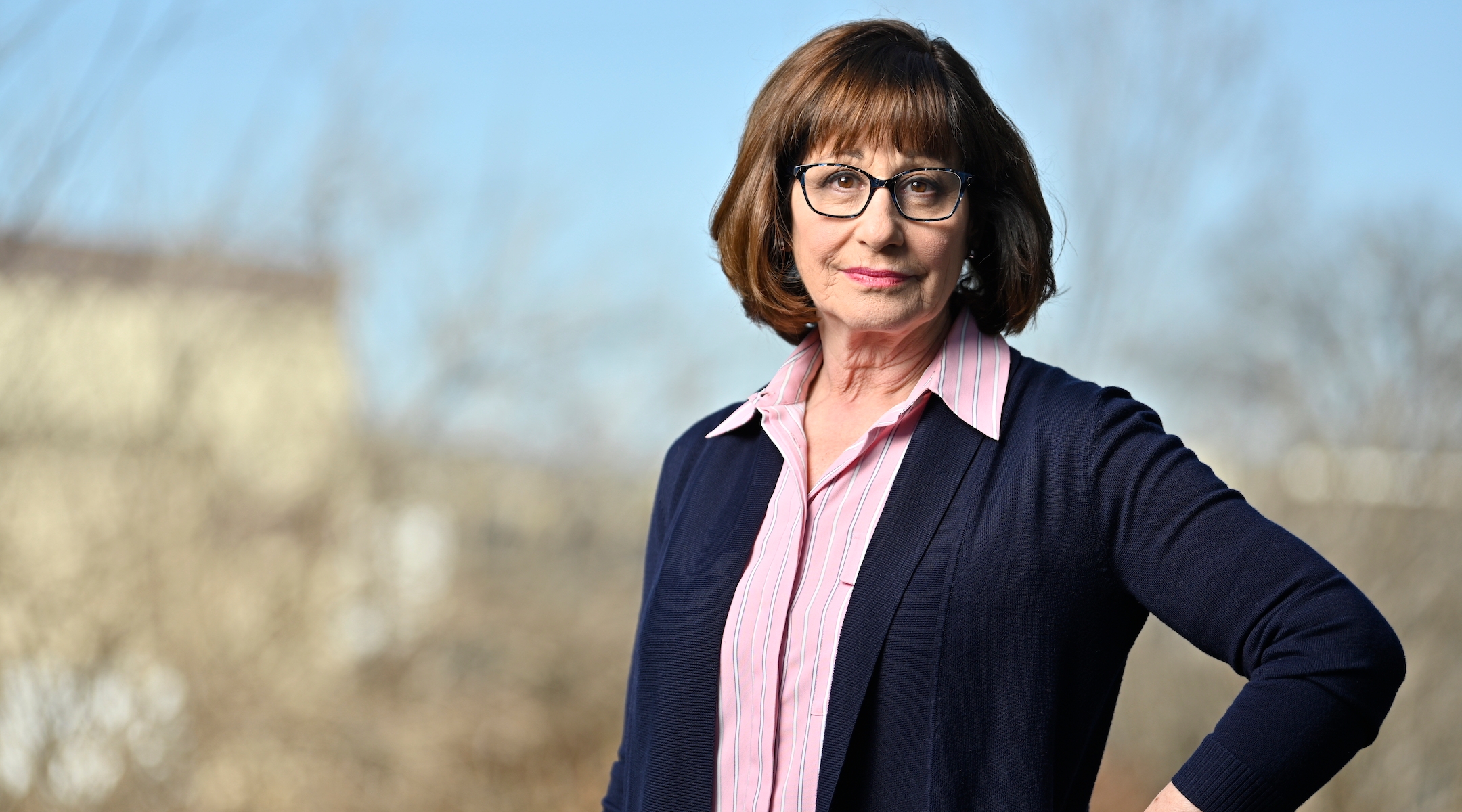
The Cook Political Report rates Jill Schupp’s Missouri race a toss-up. (Jill Schupp for U.S. Congress)
St. Louis County, Missouri – March 08, 2020
CREDIT: Matt Roth
Background: A Missouri state senator, Schupp started her political career with an election to her school board. In 2014 she felled a giant by beating Jay Ashcroft, the son of former U.S. Attorney General John Ashcroft, in a close and nasty race for a state senate seat vacated by a Republican. In 2018, Schupp agonized over whether to attend an extraordinary session of the legislature called by Gov. Mike Parson, a Republican, that would begin on Rosh Hashanah. She attended services and stayed at home, and after Schupp’s overtures, Parson agreed not to call any significant votes during Rosh Hashanah or Yom Kippur; the St. Louis Jewish community sent him a honey dish as thanks.
Big issue: Health care. Schupp says she was moved to run because the Republican incumbent, Ann Wagner, wants to dismantle the Affordable Care Act.
Backers: Barack Obama, Bend the Arc Jewish Action, J Street, JACPAC, JDCA
Odds: The Cook Political Report rates this district a toss-up, and the race has become nasty, with Wagner accusing Schupp of going easy on sex offenders, earning the Republican a “mostly false” rating from PolitiFact for ripping Schupp’s votes from context.
Alaina Shearer, 40
Ohio’s 12th District, which runs north and east of Columbus and includes Zanesville

Alaina Shearer’s campaign site and videos mention how her grandmother escaped the Holocaust in Germany. (Screen shot from YouTube)
Background: A former journalist, Shearer founded a Columbus-based digital marketing firm, then left the running of the firm to her husband while she founded a network for women in digital marketing. Shearer father’s mother was a refugee from Germany: “Her own grandmother escaped Hitler in Germany and made it to Ohio on the last refugee boat to America,” her website’s civil liberties section says. Her spokeswoman told the Jewish Telegraphic Agency that Shearer identifies as Jewish.
Big issue: Shearer lists as her top four issues health care reform, small businesses, civil liberties and combating Ohio’s opioid crisis. Shearer “would fight for early prevention for at-risk communities, harm reduction for those addicted, and long-term care and rehabilitation programs,” her campaign website says. Trump’s laser focus on opioids in 2016 helped win him swing states, including Ohio.
Backers: JDCA
Odds: The Cook Political Report includes the 12th among its 90-plus vulnerable districts, although it says Troy Balderson, the Republican incumbent, is likely to keep it.














